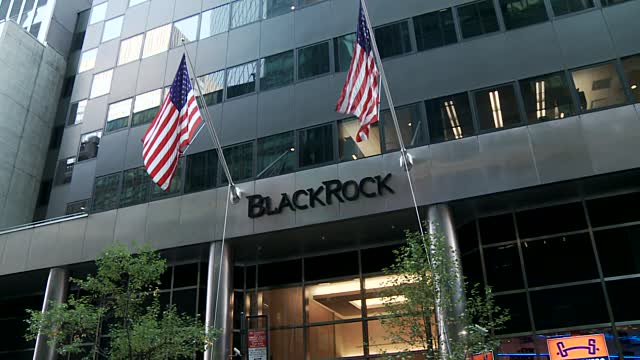by Greg Valliere, AGF Management Ltd.
GET OUT THE HISTORY BOOKS: We’ve been doing some digging this morning on contested party conventions; still another one — the 25th since 1844 — is looking quite plausible when the Democrats convene in Milwaukee on July 13-16. These affairs are often messy and divisive; less than half the candidates who won after multiple ballots went on to win the general election.
AND MAKE NO MISTAKE, the Democrats already look hopelessly divided, with well-funded candidates likely to blast away at each other for months to come:
Bernie Sanders: Not an impressive win last night in New Hampshire (he did better in 2016), but Sanders is in this race at least through the spring. As of today, he’s the shaky frontrunner.
Pete Buttigieg: Enough money to last for months and a credible argument that he can unite the party, but Buttigieg has weak support among African-Americans.
Amy Klobuchar: She peaked at just the right time, but needs to do well on Super Tuesday on March 3 or her money will run low.
Mike Bloomberg: He has the money to win this race, but the party’s base resents a Wall Street billionaire buying the nomination. “Stop and frisk” police policies that Bloomberg once supported will be an enormously divisive issue.
Joe Biden: He’s not absolutely, positively finished (but Elizabeth Warren is). Biden could finish in the top three in Nevada on Feb. 22, win South Carolina on Feb. 29 and then win a plurality of delegates on Super Tuesday. Inconvenient fact: Biden has never won a primary or a caucus in three presidential campaigns.
A CONTESTED CONVENTION thus seems likely, with no clear first-ballot winner. This has happened several times fairly recently — Gerald Ford vs. Ronald Reagan in 1976, for example. Even John Kennedy just barely won the nomination on the first ballot in 1960.
THE MORE SPECTACULAR SCENARIO would be a “brokered” convention, a term the politicians hate because it conveys the old cliche about nominees who are picked in smoke-filled rooms after secret deals and several ballots.
THE DEMOCRATS have had 15 multi-ballot conventions since 1848, including the record breaker — an astonishing 103 ballots in 1924 that produced the forgettable John W. Davis as the nominee. The Republicans have had nine multiple-ballot conventions. Only 11 of the 24 multiple ballot winners went on to win the presidency.
WHILE MULTIPLE BALLOT CONVENTIONS WERE COMMON a century ago, there haven’t been any since two in 1952, when Adlai Stevenson (D) won on the third ballot and Dwight Eisenhower (R) also won on the third ballot. Famous beneficiaries of multiple ballot victories include Abraham Lincoln in 1860 (3 ballots) and Woodrow Wilson in 1912 (46 ballots).
KEY FACTOR FOR THE DEMOCRATS IN 2020 will be “superdelegates,” now called “automatic delegates,” who are current Senators, House members, governors and party luminaries. These will account for about 16% of all delegates, and they could be pivotal. Also crucial — last-minute deal-making; could Bloomberg throw his delegates to Buttigieg or vice versa?
ALL OF THIS IS EXCEEDINGLY GOOD NEWS for Donald Trump, who will benefit because one huge chunk of Democrats — angry leftists or disenfranchised moderates — may be inclined to sit out the November election if the party’s nominee is the product of a brokered convention.
The views expressed in this blog are those of the author and do not necessarily represent the opinions of AGF, its subsidiaries or any of its affiliated companies, funds or investment strategies.
The views expressed in this blog are provided as a general source of information based on information available as of the date of publication and should not be considered as personal investment advice or an offer or solicitation to buy and/or sell securities. Speculation or stated believes about future events, such as market or economic conditions, company or security performance, or other projections represent the beliefs of the author and do not necessarily represent the view of AGF, its subsidiaries or any of its affiliated companies, funds or investment strategies. Every effort has been made to ensure accuracy in these commentaries at the time of publication; however, accuracy cannot be guaranteed. Market conditions may change and AGF accepts no responsibility for individual investment decisions arising from the use of or reliance on the information contained herein. Any financial projections are based on the opinions of the author and should not be considered as a forecast. The forward looking statements and opinions may be affected by changing economic circumstances and are subject to a number of uncertainties that may cause actual results to differ materially from those contemplated in the forward looking statements. The information contained in this commentary is designed to provide you with general information related to the political and economic environment in the United States. It is not intended to be comprehensive investment advice applicable to the circumstances of the individual.
AGF Investments is a group of wholly owned subsidiaries of AGF Management Limited, a Canadian reporting issuer. The subsidiaries included in AGF Investments are AGF Investments Inc. (AGFI), Highstreet Asset Management Inc. (Highstreet), AGF Investments America Inc. (AGFA), AGF Asset Management (Asia) Limited (AGF AM Asia) and AGF International Advisors Company Limited (AGFIA). AGFA is a registered advisor in the U.S. AGFI and Highstreet are registered as portfolio managers across Canadian securities commissions. AGFIA is regulated by the Central Bank of Ireland and registered with the Australian Securities & Investments Commission. AGF AM Asia is registered as a portfolio manager in Singapore. The subsidiaries that form AGF Investments manage a variety of mandates comprised of equity, fixed income and balanced assets.
About AGF Management Limited
Founded in 1957, AGF Management Limited (AGF) is an independent and globally diverse asset management firm. AGF brings a disciplined approach to delivering excellence in investment management through its fundamental, quantitative, alternative and high-net-worth businesses focused on providing an exceptional client experience. AGF’s suite of investment solutions extends globally to a wide range of clients, from financial advisors and individual investors to institutional investors including pension plans, corporate plans, sovereign wealth funds and endowments and foundations.
For further information, please visit AGF.com.
© 2020 AGF Management Limited. All rights reserved.
This post was first published at the AGF Perspectives Blog.














